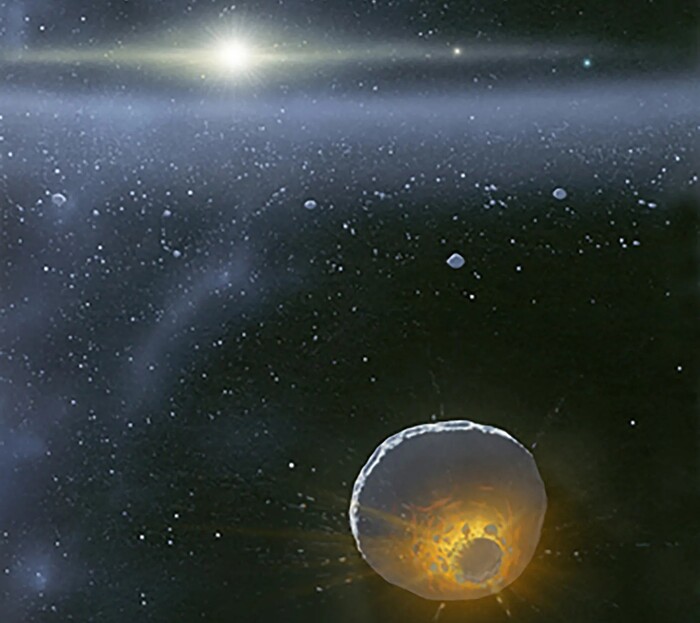An artist's recreation of the object called Oumuamua, which traversed the solar system.ESO / Reuters
More information
Goodbye UFOs;
welcome, FANI
In the midst of a pandemic, an economic crisis, rampant inequality and the irruption of a regressive, violent and racist policy, it seems incredible that there are people passionate about the Fermi paradox, raised last century by the great Italian physicist who gave him the Name. Among many other things, Enrico Fermi was a human calculator much faster than the machines of his day. One summer day in 1950, he went downstairs to eat with his colleagues in the Los Alamos laboratory canteen, where the atomic bomb had been developed a few years earlier, and instead of eating he was thoughtful. He was doing one of his famous mental calculations. Given the size of the galaxy, its age, how long it has taken for intelligent life to evolve on Earth, and the conceivable speed of spacecraft, aliens should be here by now."Where is everyone?" Fermi exclaimed at the conclusion of his calculation, which left his colleagues understandably stunned.
The 70 years since that meal may have corrected the details of Fermi's mental math, but they have only confirmed the bottom line. Rounding up a bit, all those hundreds of billions of stars that we see in the night sky - if we are lucky enough to escape Madrid and his beret - are suns surrounded by planets and, as in our Solar System, many are uninhabitable, but others look like ours. In a galaxy with 200 billion solar systems, there would have to be thousands or millions of extraterrestrial civilizations, unless ours is the product of some formidably unlikely cosmic fluke.
There are thinkers who are comfortable with the seductive idea that we are unique in the vast, perhaps infinite, cosmos that science has revealed to us. Others find it an absurd idea. The scientist's only faith is that the world is understandable, that there is something to
understand
behind its dissuasive complexity, that there are general principles that govern its behavior. If our existence were due to a cosmic chance, there would be nothing to understand there. If someone has died and it looks like an accident, the police shut up.
It is curious that physicists, who are fully aware that reality is governed by natural laws, exclude from this mental scheme the origin of life and its evolution. Once the first stars have cooked the chemical elements essential for life in their inner oven, the rest are trifles due to chance and natural selection. Laws belong to physics, not to its biological by-products. I prefer the point of view of Roger Penrose, the last Nobel laureate in physics, who has perceived that the laws of nature must be really precise and sophisticated to generate an individual from a single cell.
Do you remember that extraterrestrial object named Oumuamua that visited the Solar System in 2017? It was shaped like a kilometer-long cigar. Harvard astrophysicist Avi Loeb has announced a plan to search for other such objects. He thinks they are machines from an alien civilization. Hopefully it is right. Or not?

/cloudfront-eu-central-1.images.arcpublishing.com/prisa/COO7SHQ36BAJDFJXQXAFES6P2A.jpg)












